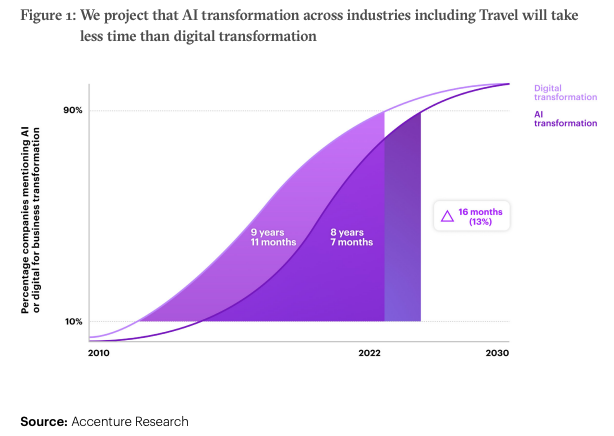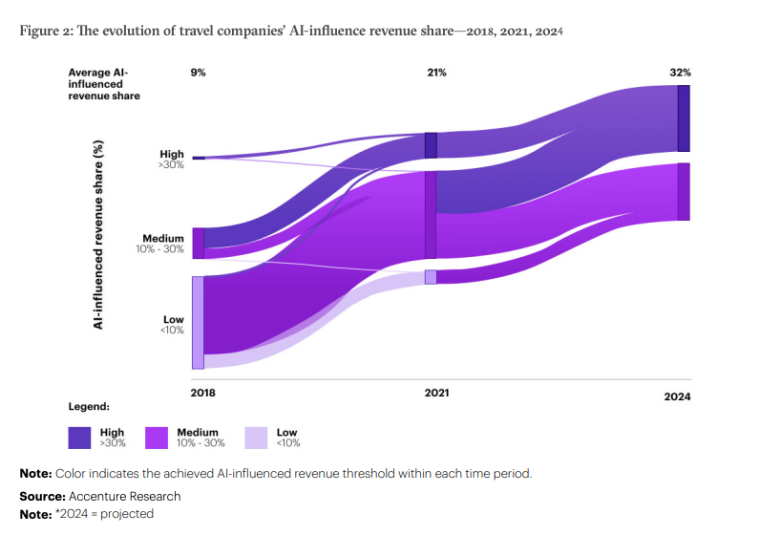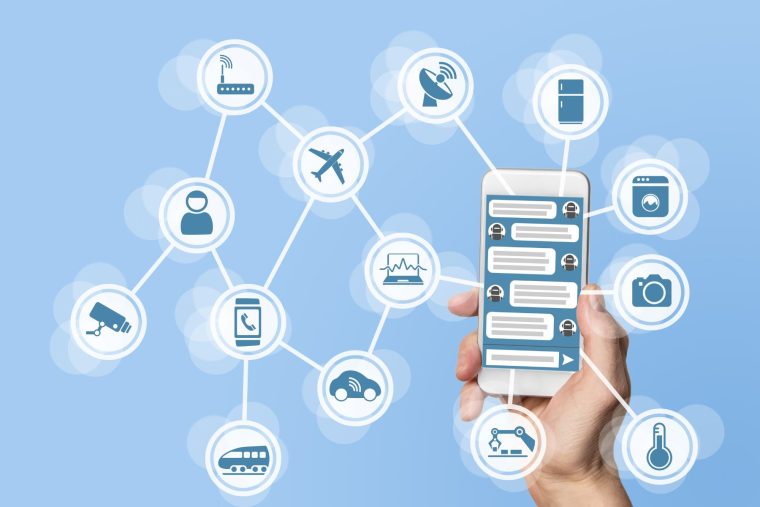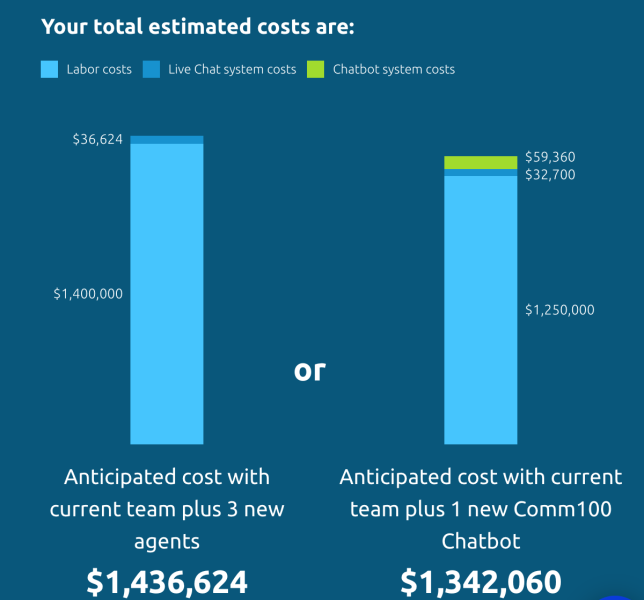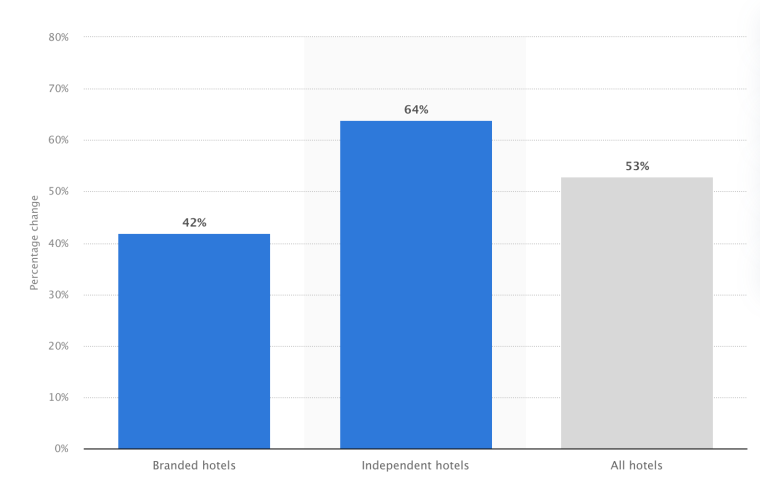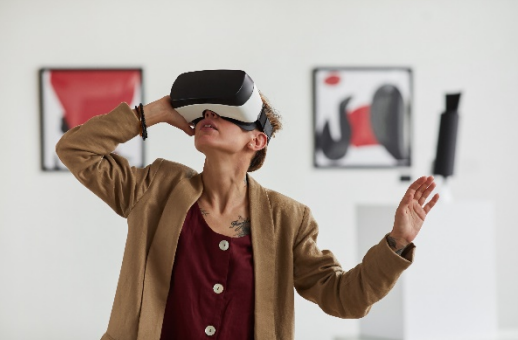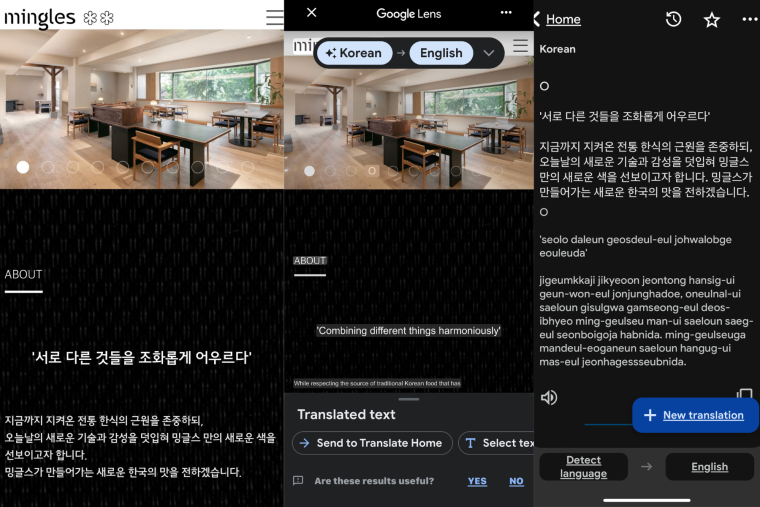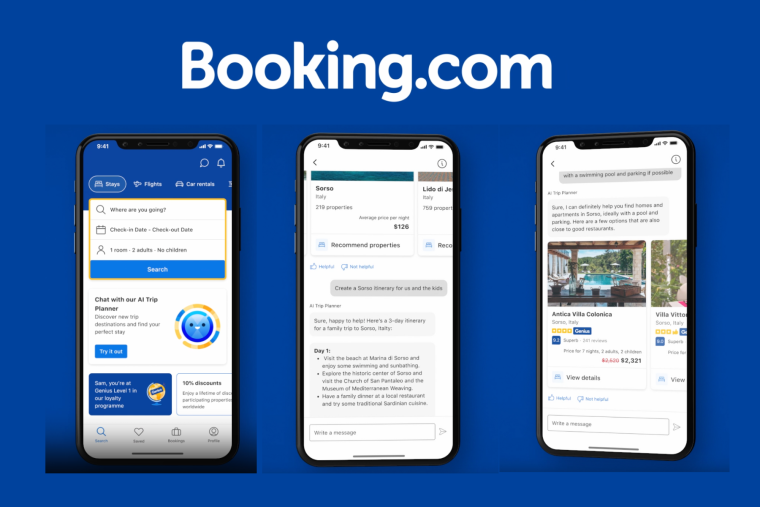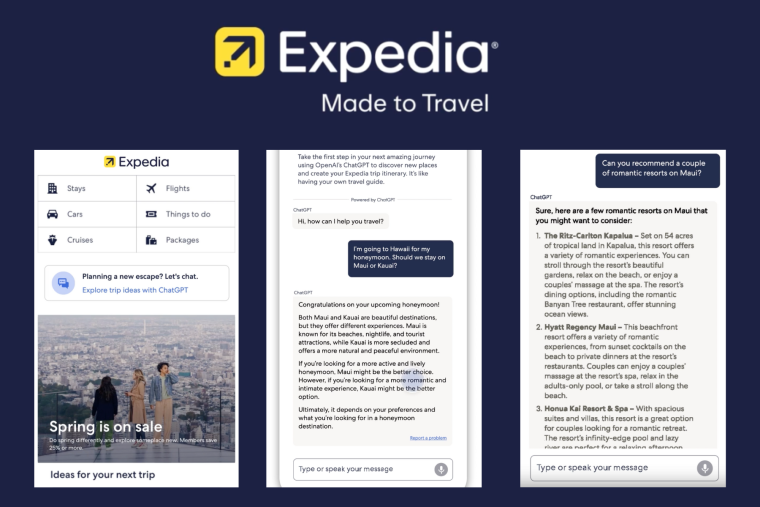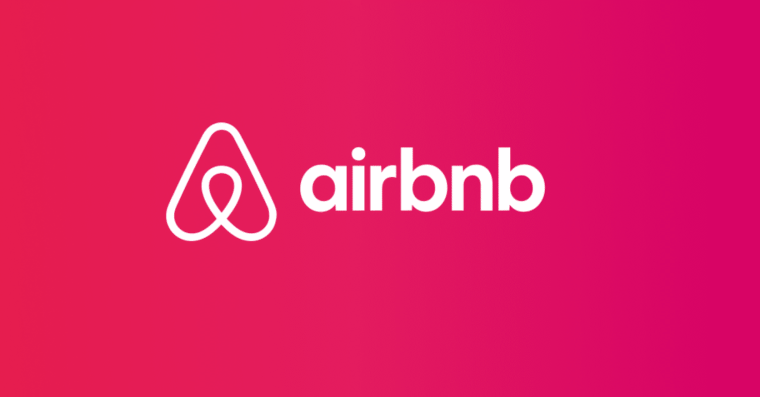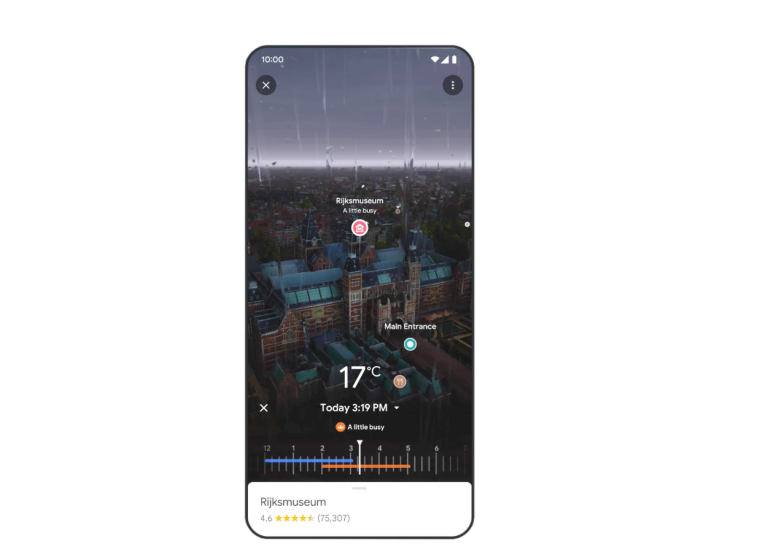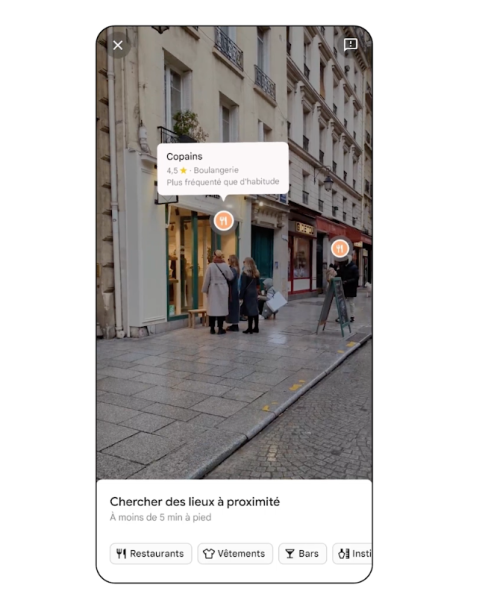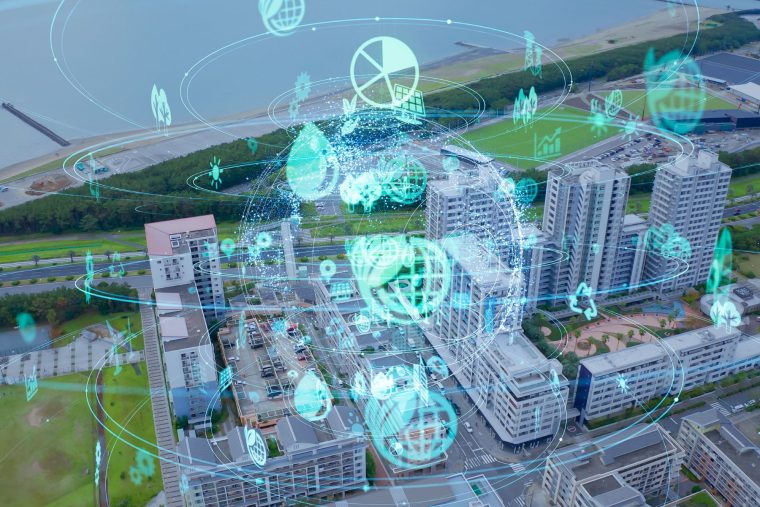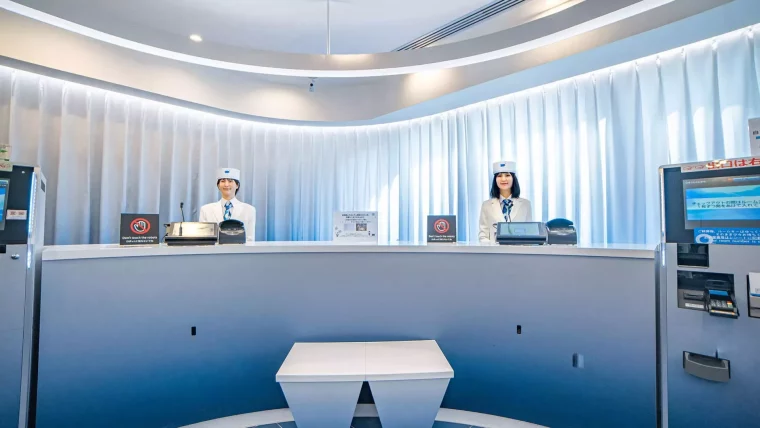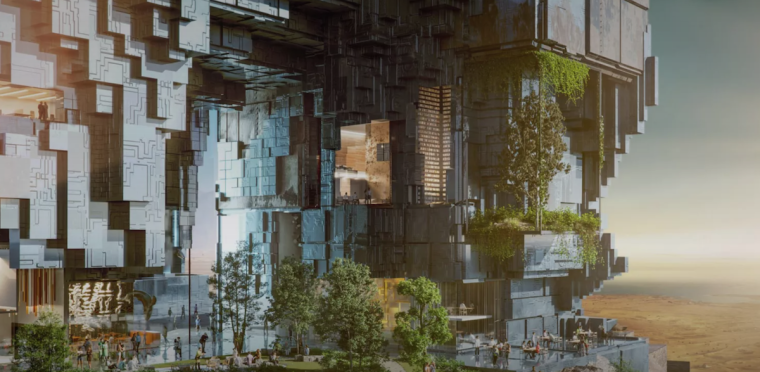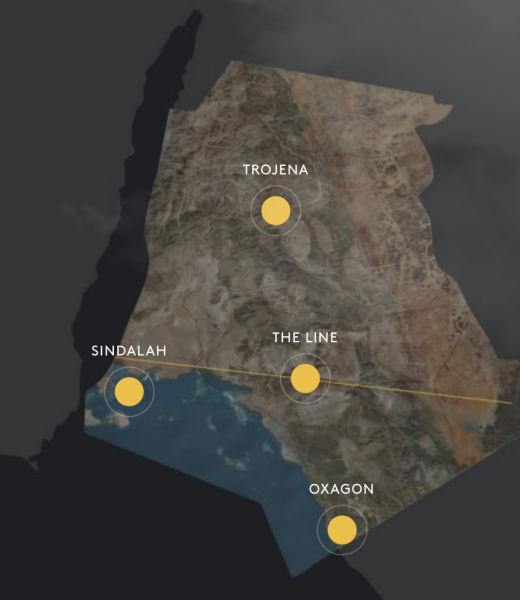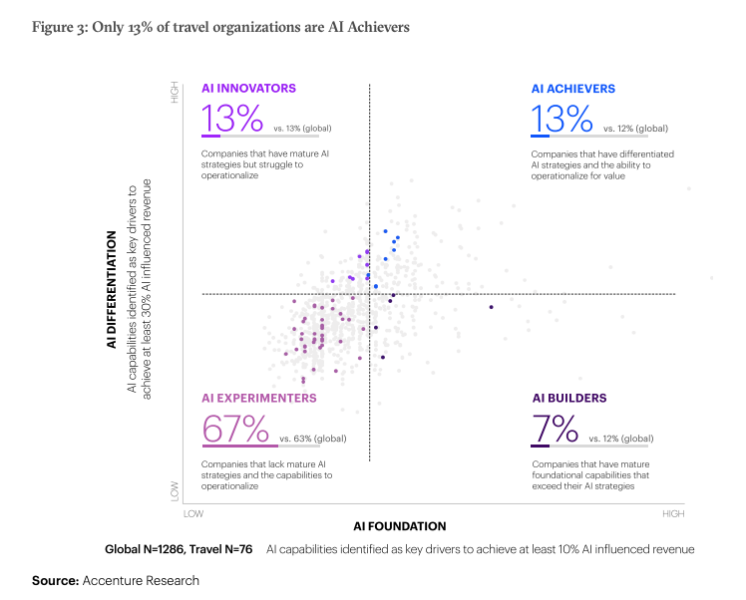The role of AI in tourism is quickly revolutionizing the industry, completely changing how we plan and experience new destinations and adventures.
Whether you’re a business owner aiming to elevate your tourism enterprise or an avid traveler searching for richer escapades, understanding the rise of AI in tourism through important statistics is an opportunity you won’t want to overlook.
AI in Tourism Statistics Highlights
- 68% of chatbot users appreciate their convenience and rapid response rate.
- 75% of travelers trust AI for accommodation planning.
- 40% of US adults are interested in AI-powered virtual travel agents.
- The AI in tourism market reached a valuation of $3.6 billion in 2023 and is projected to grow at a CAGR of 17.5% from 2024 to 2030, expected to reach $11.28 billion by 2030
- In 2032, the generative AI in the travel market is forecast to reach $3.58 billion worldwide.
Our Key Takeaways
- AI significantly impacts tourism, streamlining travel planning and enhancing experiences.
- Chatbots, personalized services, and virtual agents are key AI tools in tourism.
- AI-driven analytics provide precise customer demand and pricing forecasts.
- The future of tourism will see more tailored and efficient travel planning through AI advancements.
- The increasing use of generative AI in tourism, particularly in personalized recommendations and virtual tours, is revolutionizing how travelers experience destinations.
-
AI tools such as ChatGPT and virtual agents are rapidly gaining trust among travelers, streamlining both accommodation and travel planning
- In 2024, 33% of tourism companies’ tech budgets will be allocated to AI, up from 10% in 2018.
How is AI Used in Tourism?
Artificial intelligence (AI) is being applied in the tourism sector through various avenues, and its imprint on the market stands out. The industry has seen big shifts due to globalization, what travelers like, and new technology.
AI within the tourism sector can enhance tasks like baggage screening, airport wayfinding apps, hotel concierge services, travel planning, booking engines, and more. Investments in AI are positioned to elevate traveler experiences, boost operational efficiency, empower staff, streamline logistics, and achieve various other benefits.
According to a study by Accenture, implementing AI transformation in tourism occurs on average 16 months faster than transformation with digital technology in general.
The portion of tourism companies’ revenue deemed “AI-influenced” increased by more than 50% between 2018 and 2021. Furthermore, it is anticipated to nearly triple soon.
In 2024, 33% of tourism companies’ tech budgets will be allocated to AI, marking a significant rise from 22% in 2021
In 2021, AI insights influenced 21% of the revenue of global travel companies with over $1 billion, a significant increase from the 9% recorded in 2018. According to a global survey of these companies, this AI-influenced revenue share within the travel industry is anticipated to rise to 32% by 2024.
AI in Tourism for Customer Service
AI can process vast volumes of data, extracting valuable insights that enrich customer interactions and improve operational effectiveness. Through AI, arranging tourism activities becomes more streamlined, featuring automated and tailored services. By automating repetitive and resource-intensive activities, AI minimizes wait times and expenses, redirecting staff efforts toward crucial duties and addressing ongoing workforce shortages.
Chatbots have revolutionized the tourism industry by providing instant and personalized customer support. The functionality of chatbots relies on natural language processing (NLP), a technology that utilizes AI-trained models to comprehend and precisely respond to users.
68% of users appreciate chatbots’ convenience and rapid response rate. Chatbots enable direct communication between customers and travel companies, effectively minimizing wait times and delivering a swift, user-friendly, and effortless customer journey. These AI-powered tourism industry assistants adeptly handle tasks, collect data, and resolve concerns, all without human intervention.
Companies can increase bookings and their ROI by implementing chatbots. For example, let’s analyze a scenario using a Chatbot ROI Calculator with the provided data to assess the impact of integrating a Comm100 AI-powered chatbot into the company’s contact center.
| Company Size | Employee Salary | Average Duration of Chat | Number of Simultaneous Chats |
Anticipated Rise in Chat Volume |
| 25 | $50,000 | 12 minutes | 3 | 10% |
With a 10% surge, the team’s yearly chat capacity would increase from 780,000 to 858,000 chats annually. The company would need three more agents or one Comm100 Chatbot with unlimited capacity to meet this demand.
With the implementation of a chatbot, the company’s expenses would be reduced to $1.34 million. Consequently, this leads to an annual savings of $94,564, resulting in an ROI of 59.3%.
A study by Juniper Research found that chatbot-based interactions could increase sales from $7.3 billion in 2019 to $112 billion by 2023. The study also revealed that chatbot interactions were predicted to increase to 22 billion by 2023 from 2.6 billion in 2019.
According to a chatbot service provider, the cost of chatbots ranges from $0 to $1,000 per month or more. The cost estimate varies depending on the specific tasks assigned to the chatbot. The following tasks could be designated to chatbots:
- Customer service
- Website navigation
- Scheduling or registration
- Transactions
- Lead generation
Generative AI for Trip Planning
A survey in February 2023 revealed that 40% of US adults were interested in AI-powered virtual travel agents and customer support. Additionally, 38% showed an interest in utilizing AI-generated personalized travel itineraries.
Generative AI can interpret extensive customer information, including travel histories and preferences. Data can be analyzed to create personalized recommendations spanning destinations, activities, and comprehensive itineraries.
75% of travelers trust AI for accommodation planning. In August 2022, a global survey inquired about travelers’ inclination to trust AI for planning trips in 2023. Accommodation planning garnered the most trust in AI among the various travel aspects explored. The subsequent findings were closely aligned, all within a 5% range:
- 74% trust AI for international transport arrangements
- 74% trust AI for local transport arrangements in the destination country
- 73% trust AI to take care of passport renewals
- 72% trust AI to find personalized travel insurance
- 72% trust AI for work/meetings
- 70% trust AI to find meals and entertainment
- 70% trust AI for experimental activities
- 70% trust AI to determine a trip’s environmental impact
In April 2023, approximately 30% of survey respondents in the US expressed a high or moderate likelihood of using ChatGPT to organize their upcoming trips. In contrast, 26% of the surveyed individuals considered utilizing the tool very or somewhat unlikely for trip planning.
According to Euromonitor International, travelers using AI tools like ChatGPT to plan their itineraries are expected to increase substantially. Travelers can access AI tools on diverse devices like smartphones and computers, regardless of location or time, as long as they have an internet connection. “The massive increase can be narrowed down to convenience and 24/7 accessibility,” says Caroline Bremner, Head of Travel and Tourism Research at Euromonitor International.
97.8% of travel executives foresee AI influencing the tourism sector. In 2023, AI disrupted the travel bookings sector, considering that 66% of bookings are already conducted online, and mobile bookings contribute 35% of total online sales.
Hotels and Lodging
Accommodation providers such as hotels and lodging marketplaces embrace AI to elevate guest experiences by offering personalized services and seamless interactions.
AI streamlines operations, optimizing tasks like reservations, check-ins, and housekeeping, increasing efficiency and customer satisfaction. Additionally, AI-driven analytics provide valuable insights into guest preferences and trends, enabling providers to make informed decisions and tailor their offerings accordingly.
AI Chatbots and Robots in Hotels
In a global survey of hoteliers conducted in January 2022, hotel professionals shared that using chatbots in the hospitality sector was predicted to increase by 53%. The study anticipated a 42% rise in using this technology in branded hotels and a 64% increase in independent hotels.
Chatbots can plan a diverse range of services, incorporating both internal operations and guest interactions, including:
- Placing food orders
- Arranging transportation
- Managing schedules
- Setting alarms
- Organizing room services
- Coordinating housekeeping
- Informing about hotel facilities
According to chatbot providers, implementing chatbots can increase guest satisfaction and reduce hotel costs.
Here are some reasons why chatbots are used in the hotel industry:
- 24/7 customer service
- Personalized promotions
- Reduces operational costs
- Allows staff to focus on complex inquiries
- Lead and increase direct bookings
Global hotels chains that leverage chatbots to elevate both guest experiences and hotel operations include:
- Marriott Hotels
- Hyatt Hotels
- GRT Hotels
AI-driven robot receptionists are also trending in the hotel sector, directly impacting tourist interactions and experiences.
These robots can manage room services, ensuring seamless check-ins for guests. For example, Marriott’s renowned hotels like St. Regis, Westin, and Aloft have introduced the Alexa robot for tourists to interact with.
Museums and Guided Tours
By blending technology and human experiences, AI reshapes visitors’ engagement with art, history, and culture. A 2021 survey by Museum Booster revealed data on how many museums are utilizing AI worldwide:
- 49% of museums don’t use AI in their operations.
- 29% of institutions lack information on AI usage.
- 4% of museums are unsure about AI implementation.
- Less than 20% apply AI in areas like collections, administration, management, education, and finances.
AI and machine learning can help museums and other cultural institutions gather tourist information. Data collection and analysis enable museums to better understand their audiences, improve their offerings and services, assess performance, identify trends, and handle feedback.
Notable museums across the globe utilize AI in their operations to magnify visitor experiences:
| Museum | American Museum of Natural History | The National Gallery | The Metropolitan Museums of Arts |
| Location | New York City, USA | London, UK | New York City, USA |
| AI Purpose | Visitor surveys and comments analysis | Forecasting models and visitor data |
Providing access to the Collection |
| AI Type | Natural Language Processing (NLP) | Machine Learning | Machine Vision |
AI offers museums the opportunity to leverage its capabilities in the following ways:
| Information Management | Visitor Experience | Audience Engagement |
|
|
|
A museum intelligent assistant (MIA) can complement the overall museum experience by providing visitors with information, interactivity, personalization, and convenience.
PalaisPopulaire, an art and cultural institution in Berlin, Germany, utilizes an MIA, which employs IBM Watson Assistant technology within the museum’s mobile app. MIA enables visitors and tourists to engage interactively by asking diverse questions about the exhibits and offerings.
AI facial recognition systems can evaluate customer satisfaction during tourism experiences. Researchers at the University of Seville conducted a study to examine how AI could measure tourists’ emotions and satisfaction with service quality during guided tours at a UNESCO heritage site.
The results confirmed that reading facial expressions is just as effective as using self-administered questionnaires to measure customer satisfaction. Scores were assigned to different emotions like anger, disappointment, aversion, fear, happiness, neutral, sadness, and surprise for all participants. Additionally, the experiment confirmed a person can show multiple emotions simultaneously if they are similar, such as happiness and surprise.
Language Translation
Translation technology is rapidly progressing, utilizing the power of artificial intelligence. Advancements in AI and NLP technologies have improved machine translation systems, driving the market’s growth.
In 2021, the global machine translation market hit $812.6 million. It is projected to reach $4.069 billion by 2030, with a growth rate of 19.9% from 2022 to 2030. The driving factors for the global machine translation market include the rising need for multilingual communication and the expanding global tourism industry.
As of May 2023, Google Translate had 8.82 million downloads, solidifying its position as the premier translation app on a global scale. Using Google Translate, tourists can point their phone’s camera at the text for instant on-screen translations. Alternatively, they can translate text within images captured by the camera. This is particularly beneficial for tourists capturing information in the moment for later translation.
Language translation technology powered by AI enhances the tourist experience and encourages engagement. For example, the camera integration “Google Lens” feature of Google Translate helps visitors navigate restaurant menus, read city signboards, or explore attractions.
Who is Using AI in Tourism?
According to a 2022 survey among service professionals, 30% of the travel and hospitality industry depends on artificial intelligence. In tourism, travel companies utilize AI across diverse functions, from customer service and marketing to operations and analytics.
Online travel tech companies are embracing AI to revolutionize how travelers plan and experience their journeys.
By leveraging AI-powered recommendation systems, these companies offer personalized travel suggestions, accommodation options, and itineraries tailored to each tourist’s preferences. Additionally, chatbots and virtual assistants amplify customer service, providing real-time assistance, answering inquiries, and facilitating seamless bookings, all while enhancing the overall user experience.
Let’s examine some of the top global online tech giants and explore how they harness the power of AI for their strategic advantage.
Booking.com
In June 2023, major online travel agency Booking.com introduced a beta version of a chat planner in the US that utilizes ChatGPT technology. Their trip planner uses AI technologies to provide customers with instant recommendations and compose custom travel plans, considering interests, budgets, fellow tourists, and trip goals.
| Company Name | Booking Holdings |
| Market Cap | $112.95 billion |
| Headquarters | Amsterdam, Netherlands |
| Sector | OTA |
| Subsidiaries |
|
| AI Used |
|
Expedia
In April 2023, Expedia launched its conversational trip planning powered by ChatGPT.
A ChatGPT plug-in was developed by Expedia that allows travelers to initiate conversations directly on the ChatGPT website. Users can instantly transform their chat into an interactive travel experience by selecting the Expedia plugin.
Expedia’s virtual agent has saved more than 2 million hours of service time in a single quarter. Using advanced AI and language models, Expedia offers customers a seamless way to explore destinations and enjoy integrated travel experiences.
| Company | Expedia |
| Market Cap | $16 billion |
| Headquarters | Seattle, US |
| Sector | OTA |
| Subsidiaries |
|
| AI Used |
|
Hopper
Hopper relies on its exclusive machine learning algorithms, which examine more than 8 years of travel data and process 50 billion real-time prices daily.
While other travel agencies provide fixed pricing for travel extras, Hopper uses data-driven insights to generate real-time risk evaluations and adjust prices dynamically.
| Company | Hopper |
| Market Cap | $5 billion |
| Headquarters | Montreal, Canada |
| Sector | OTA |
| Subsidiaries |
|
| AI Used |
|
Airbnb
Airbnb leverages the potential of AI to enrich its business operations in two distinct and innovative ways:
- AI-enabled guest background checks – AI reviews guests before they stay at host properties.
- Smart pricing algorithms – a machine-learning algorithm helps hosts set competitive rates to maximize occupancy rates.
Based on feedback from Airbnb hosts, the Smart Pricing feature resulted in an average increase of 7% in their booking prices and achieved an occupancy rate of 92%.
Airbnb’s CEO Brian Chesky noted that AI is improving the efficiency of their software engineers, with an anticipated 30% reduction in tasks that ChatGPT-like tools could automate within six months.
Chesky said he aimed to excel in AI personalization, necessitating a shift from focusing solely on “where and when” to understanding “who you are and what you want”.
Airbnb envisions evolving into the ultimate AI concierge, offering unique interfaces that extend beyond traditional text inputs to meet guests’ needs effectively.
This transformation involves building comprehensive profiles to gather valuable customer information, resulting in a tailored experience. Airbnb intends to create more than text-based interfaces; they intend to develop robust profiles, fine-tune models, and design personalized AI interfaces combining images and texts.
| Company | Airbnb |
| Market Cap | $78.81 billion |
| Headquarters | San Fransisco, US |
| Sector | Lodging Marketplace |
| Subsidiaries |
|
| AI Used |
|
Google Maps
Google Maps, a vital Google platform, aids tourists in navigating unfamiliar places, discovering nearby attractions, finding accommodation, and planning trips wisely. Tourists can use it to navigate, explore, and plan their journeys. It provides information about directions, routes, traffic conditions, public transportation, landmarks, points of interest, and more.
The mapping platform uses artificial intelligence, such as computer vision, to offer real-time views of the physical world. Google Maps can be a reliable local guide because it assists travelers in navigating accurately and enhances location-based experiences.
According to Morgan Stanley’s projections, Google Maps is anticipated to generate a combined revenue of over $11 billion in 2023. This includes desktop local search ($1.23 billion) and mobile ($9.82 billion) sources.
In February 2023, Google announced the launch of Immersive View on Google Maps, an AI-driven feature that captures the complete ambiance of a location. Immersive View leverages advanced AI techniques called neural radiance fields (NeRF), which transform regular images into 3D representations.
The Immersive View time slider helps identify peak crowd areas, providing essential information for making informed decisions about when and where to visit. It also allows users to observe the area’s appearance at various times of the day and anticipate the weather conditions.
Google Maps has also introduced Search with Live View, which combines AI and augmented reality. By raising a phone while walking, users can locate nearby points of interest like ATMs, restaurants, parks, and transit stations. The feature offers valuable details such as opening hours, current crowd status, and ratings, empowering users to make well-informed choices and optimize time effectively.
| Company | Alphabet |
| Market Cap |
|
| Headquarters | San Fransisco, US |
| Sector | Tech Navigation |
| Related Services |
|
| AI Used |
|
Trip Advisor
In 2022, Trip Advisor utilized conversational AI technology to elevate customer experiences and extend engagement durations.
In a campaign featuring voice assistants like Alexa and Google Assistant, users could engage with itineraries — one for Abu Dhabi and the other for Visit Orlando.
As a result, users spent an average of over 4 minutes interacting with the campaigns, responding to about seven prompts. Overall, the Visit Orlando campaign amassed 450 hours of user engagement, while the Abu Dhabi campaign accumulated over 1,300 hours.
| Company | Trip Advisor |
| Market Cap | $2.20 billion |
| Headquarters | Massachusetts, US |
| Subsidiaries |
|
| AI Type |
|
Benefits of AI in Tourism Statistics
AI empowers tourism companies to create personalized and unforgettable travel experiences for their customers.
A study in early 2023 asked people in the US to guess if a human or artificial intelligence wrote a text relative to travel and tourism. For GPT-3.5, around 53% of respondents believed the text was human-generated. For GPT-4.0, this went up to 66.5%.
Workplace Productivity
AI can automate around 40% of the typical workday tasks. A survey conducted by Valoir highlighted that a significant amount of time spent on calendar management and scheduling could be made more efficient through AI automation. This insight is especially important for the tourism industry, indicating the potential to use AI for automating a considerable part of these tasks.
Online tech travel agencies and companies in the tourism industry can leverage AI to their advantage in multiple ways through algorithms.
| Type of AI | Purpose |
| Personalization algorithms | AI-driven algorithms analyze user preferences, behaviors, and past interactions to provide personalized hotel and travel recommendations. |
| Dynamic pricing algorithms | AI is used to optimize pricing strategies based on demand, competition, and historical data. |
| Search algorithms | AI algorithms assist users in finding the most relevant and suitable accommodations based on their search criteria. |
| Chatbots and virtual assistants | Chatbots provide real-time customer support and can assist with booking-related inquiries. |
| Fraud detection | AI helps in identifying fraudulent activities during bookings and transactions, enhancing security. |
| Review analysis | Sentiment analysis AI evaluates customer reviews and feedback, allowing a platform to improve its services. |
| Customer service automation | AI-powered tools automate routine customer service tasks, speeding up response times and providing efficient support. |
Efficient Maintenance
AI predictive maintenance can enhance guest satisfaction in the tourism sector, including hotels, by minimizing the chances of equipment breakdowns.
According to a source referencing the American Hotel & Lodging Association, improper temperature control is a major cause of guest dissatisfaction. Predictive maintenance can help hotel HVAC systems maintain comfortable room temperatures consistently, lowering the risk of guest complaints.
Cost reduction is a key benefit of predictive maintenance in the hotel sector. By scheduling maintenance during off-peak hours and detecting potential issues in advance, hotels can avoid costly emergency repairs. Additionally, predictive maintenance enables hotels to prolong the lifespan of their equipment and avoid spending money on replacements.
Improved Sustainability
Intelligent automation can promote sustainability and underline environmental, social, and economic outcomes. This ranges from diminishing natural resource consumption to anticipating tourist behavior.
For example, researcher Pereira-Doel employed AI-driven water-saving technology to offer shower feedback to hotel guests, effectively inspiring pro-environmental behavior. The field experiment revealed a 12.06% reduction in showering time, underscoring the efficacy of real-time AI-driven feedback in encouraging environmentally friendly behaviors.
Data analysis facilitated by AI is aiding in the management of sustainable tourism. AI uses tourism data to reveal patterns for informed decisions. Swift algorithms process data, helping stakeholders detect popular spots, forecast demand, and manage resources to counter over-tourism.
Environmental, social, and governance (ESG) concerns will challenge the tourism industry for the next 10 years, but AI can help. The industry’s expansion has led to problems such as excessive development in places, over-tourism, and local communities being displaced. Overtourism strains resources worsens pollution, and puts biodiversity at risk, especially in fragile ecosystems.
AI can potentially be crucial in advancing ESG principles within the tourism industry, such as:
- Environmental impact monitoring
- Resource management
- Sustainable travel planning
- Impact assessment
- Community engagement
- Supply chain transparency
- Predictive analytics
Challenges of AI in Tourism Statistics
Adopting AI in the tourism industry brings challenges that require careful consideration. For example, balancing automation with personalized human touch remains a delicate task.
Lack of Quality Data
The lack of quality data presents a significant challenge for the application of AI in tourism.
AI systems heavily rely on diverse algorithms for accurate predictions, recommendations, and decisions. Data may include tourist preferences, historical booking patterns, user behavior, and local destination information in tourism.
The tourism industry often faces limitations in collecting and accessing comprehensive data because of privacy concerns and data protection regulations. Additionally, smaller businesses or destinations might not have the resources to gather extensive data, leading to a scarcity of relevant information.
Without sufficient data, AI models may struggle to provide accurate, personalized recommendations, understand shifting tourism trends, and predict tourist behavior effectively. To overcome this challenge, collaboration among industry stakeholders, leveraging anonymized data, and adopting technologies that respect privacy while allowing data aggregation can amplify AI’s effectiveness in the tourism sector.
Job Displacement
One of the primary concerns related to the impact of AI in the tourism sector has been the displacement of workers. However, machines and technologies cannot replicate the capabilities that humans excel at, such as tasks involving perception and direct interaction with the physical world.
Low- and high-skilled jobs are less prone to replacement by automation. High-skilled roles remain secure due to task complexity and nonroutine responsibilities.
On the other hand, low-skilled jobs are safeguarded by their cost-effectiveness, diverse tasks, and the inclusion of non-routine activities. In contrast, medium-skilled positions, often involving routine tasks, are more susceptible to being taken over by technology.
Japan is at the forefront of potential job displacement through automation, with 56% of its activities and occupations highly susceptible to this change. The shift in job displacement within the tourism industry in Japan became evident with the introduction of Japan’s renowned robot-operated hotels.
For example, in 2015, Henn na Hotel gained attention for its innovative use of robotics and automation to manage various hotel operations typically done by human staff in other hotels.
For instance, at the reception desk, guests are welcomed and checked in by humanoid robots fluent in multiple languages. These robots aid with check-ins and offer info about amenities. Inside the rooms, robotic assistants provide weather updates, answers, and control over room features. Some versions even include robot concierges guiding guests and handling luggage.
AI can potentially substitute around 300 million full-time jobs. However, this transformation might also lead to the creation of new jobs and a surge in productivity. Projections indicate that AI could eventually elevate the total annual value of globally produced goods and services by 7%.
Safety & Security of Data
The tourism industry obtains highly valuable and sensitive information about tourists, making it a prime target for hackers. Cyber threats can lead to breaches, consequently harming customer trust.
In 2018, Cathay Pacific Airways experienced a significant data breach in which approximately 94 million user records were compromised.
This breach exposed many of its customers’ sensitive personal information, including names, passport details, email addresses, and credit card numbers. The incident highlighted the risks and challenges the airline, aviation, and tourism industry faced in safeguarding customer data against cyberattacks and unauthorized access.
From 2020 to 2021, the travel and leisure sector experienced the highest growth in suspected digital fraud attempts. Within this sector, digital fraud saw a significant year-on-year increase of 68.4%, primarily driven by credit card fraud, where customers use fake or stolen credit cards for purchases, leading to chargebacks for websites.
Worldwide weekly attacks on travel and leisure-related organizations rose by 60% in June 2022 compared to the first half of June 2021. This surge highlights the increasing vulnerability of the industry to cyber threats.

Cyber attackers target multiple IT environments within the tourism industry. Trustwave’s Global Security report revealed the following vulnerabilities concerning attacks on IT environments within the tourism sector:
- 72% corporate/internal networks are vulnerable.
- 14% e-commerce sites could be attacked.
- 14% cloud systems face security concerns.
With 58% of ransomware attacks, the travel industry is the most targeted sector for such incidents.
- 14% of attacks involve financial data.
- 14% of attacks concern CNP (e-commerce).
- 14% of attacks pertain to card-track data.
Hotels experienced 13% of all cyber compromises in 2019, ranking as the third most targeted industry by hackers across various sectors. Bookings in these sectors demand a lot of personal information, leading companies to gather a wealth of personal data that can be tempting for potential hackers.
The Future of AI in Tourism
AI Empowering the Tourism Economy
According to industry experts, AI could contribute an additional $1 trillion to the global tourism sector by 2025. The market could advance significantly with innovative AI-powered solutions like automated customer service, voice and facial recognition, targeted smart marketing, and effective demand management.
AI will transform both the tourism sector and the behaviors of tourists in the future. From personalized recommendations and seamless booking processes to real-time translation and enhanced customer service, AI will revolutionize how travelers interact with services and destinations.
By 2030, AI in the tourism market is projected to surge, with a compound annual growth rate (CAGR) of 35.2%, elevating its value from $81.3 billion in 2022 to an impressive $908.7 billion. This rapid expansion underscores the profound impact that AI is set to have on shaping the future of the tourism industry.
In 2032, the global generative AI in the travel market is forecasted to reach around $3.58 billion, up from an estimated $632.18 million in 2022. This growth is expected to maintain a steady CAGR of 18.94% from 2023 to 2032.
Smart Cities for Tourism
Smart cities represent AI’s future by integrating technology into urban services. AI analyzes data for efficient transportation, energy, safety, and more. This enhances city life, predicts issues, and improves services. Smart cities will learn and adapt as AI advances for better urban living.
AI can aid in the promotion and advancement of smart cities. According to researchers at Kyung Lee University, AI shapes and boosts the functionalities of smart cities through advanced algorithms, data analysis, and automation.
“A smart city is defined as a city equipped with ICT infrastructure to lead social and urban growth through reinforcement of economic level, citizens’ participation, and government efficiency.”
For example, NEOM is a groundbreaking development project aiming to create a futuristic, technologically advanced, smart city in the North West of Saudi Arabia with the help of AI.
It’s designed to be powered by renewable energy sources and to prioritize sustainability, innovation, and cutting-edge technologies. As a forward-thinking smart city project, it is expected to leverage AI across various sectors to boost its residents’ efficiency, sustainability, and overall quality of life.
As of August 2023, NEOM has four districts in development:
- Oxagon – an industrial city
- Trojena – a mountain destination
- Sindalah – a luxury island
- The Line – a linear smart city
Tourism’s Response to the Age of AI
In 2024, tourism companies anticipate allocating 33% of their technology budgets to AI.
Comparatively, this marks an increase from the 10% allocated in 2018 and the subsequent increase to 22% in 2021.
Approximately 67% of travel companies with revenues exceeding $1 billion were categorized as “AI Experimenters” in a 2021 global survey.
Conversely, about 13% of the companies studied were “AI Achievers”, characterized by their robust AI strategies and adept implementation capabilities.
AI Achievers can lead to a 50% in revenue growth in tourism. Additionally, Achievers outperform Experimenters by 8% in customer experience metrics.
OTAs will continue to use generative AI to improve customer service and provide distinctive, custom travel itineraries. Generative AI makes it possible to examine vast amounts of customer data, encompassing travel history and preferences. This enables the creation of personalized suggestions for destinations, activities, and travel plans.
With every click, tap, and query, AI is shaping the narrative of modern tourism. It breathes life into personalized recommendations, unveiling hidden gems, while chatbots effortlessly dissolve language barriers, laying the path for explorers to embark on bespoke journeys.

